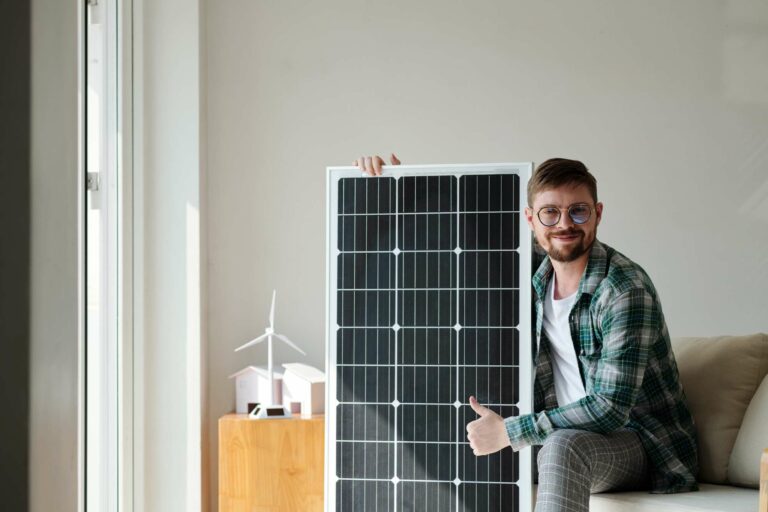Going Off-Grid: Is It the Right Choice for You?
The idea of living off-grid, powered by solar energy, holds a certain allure of independence and self-sufficiency. Going off-grid means disconnecting from the traditional power grid and relying solely on renewable energy sources like solar panels and energy storage systems. While the prospect of energy independence is enticing, it’s essential to consider the benefits and considerations involved in this lifestyle choice. In this article, we will explore the concept of going off-grid with solar energy, helping you understand if it is the right choice for you.
Benefits of Going Off-Grid:
- Energy Independence: One of the most significant advantages of going off-grid is achieving true energy independence. By relying solely on your solar energy system and energy storage, you are no longer subject to power outages or fluctuations in grid-supplied electricity. You have complete control over your energy production and consumption.
- Environmental Impact: Going off-grid with solar energy significantly reduces your carbon footprint. You rely on clean and renewable energy, minimizing the need for fossil fuels and reducing greenhouse gas emissions. This environmentally friendly approach contributes to a more sustainable future.
- Cost Savings: While the initial investment for an off-grid solar system may be higher than a grid-tied system, it can lead to long-term cost savings. Once installed, you no longer pay monthly electricity bills, and with proper maintenance, the system can last for decades, offsetting your initial investment.
- Remote Living Possibilities: Off-grid solar energy opens up opportunities for remote living. You can build or live in locations far away from the traditional power grid, enjoying the serenity of nature without compromising on modern amenities.
Considerations and Challenges:
- System Sizing and Energy Storage: Off-grid systems require careful consideration of energy storage. You need to install enough battery capacity to store excess energy generated during sunny periods for use during cloudy days or at night. Proper system sizing is critical to ensure uninterrupted power supply.
- Initial Investment: Off-grid systems tend to have higher upfront costs due to the inclusion of energy storage solutions. It’s essential to consider your budget and financing options to make the investment more manageable.
- Energy Consumption Habits: Becoming energy independent also means becoming energy-conscious. You’ll need to be mindful of your energy consumption and make adjustments to ensure you have enough stored energy for times when solar generation is low.
- Backup Options: While off-grid systems can provide reliable power most of the time, there may be periods of extended bad weather that limit solar energy production. Having a backup generator or alternative power source can be useful during these situations.
- Maintenance and Expertise: Off-grid systems require regular maintenance and monitoring. It’s essential to have a good understanding of the system’s components or seek professional assistance to ensure proper functioning.
Conclusion:
Going off-grid with solar energy can be a rewarding lifestyle choice for those seeking energy independence, sustainability, and a closer connection to nature. However, it’s essential to carefully consider the benefits and challenges involved before making the decision. A well-designed and properly maintained off-grid solar system can offer significant benefits, but it requires careful planning and attention to energy management.
At Beta Solar, we understand the appeal of off-grid living and can guide you through the process of making an informed decision. Our team of experts will assess your energy needs, recommend the appropriate system size and energy storage solutions, and provide ongoing support to ensure a successful off-grid experience.
Contact us today for a consultation, and let’s explore the possibility of going off-grid with solar energy, empowering you to embrace a more self-sufficient and environmentally conscious lifestyle.



